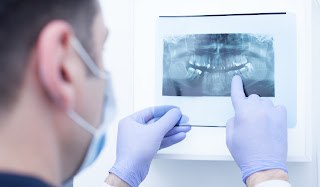Understanding What Is Emergency Dental
What Is Emergency Dental
For some people, an emergency dental visit is a necessary part of their regular routine. A broken crown or throbbing tooth can interfere with daily life. However, emergency dental care should not be neglected, as it may result in more serious dental problems down the line. Fortunately, emergency dental services are relatively simple to perform. A dentist can assess the situation and begin treatment immediately. Knowing when to seek emergency dental care can prevent a more severe problem down the line.
If you've had an accident that has knocked out a tooth, your emergency dentist can quickly replace it with a dental crown. The emergency dentist will also clean the affected area if the tooth is infected. He or she will use a mild antiseptic to prevent further infection. A root canal is another treatment your dentist can perform quickly. This can prevent the risk of gum infection and reduce the pain. In the event of a toothache, you'll likely receive antibiotics and pain medications until a suitable appointment can be scheduled.
Difference Between Dental Clinic and Emergency Room
A dental clinic is an office that is equipped to deal with emergencies that arise with the teeth and gums. It is equipped with tools and trained personnel to address the root cause of dental problems. In addition, it has access to modern equipment and procedures, including nitrous oxide and oral conscious sedation. Dental emergency rooms are the last resort for many patients who require permanent dental care. Nonetheless, many patients require dental treatment at some point in their lives, and a dentist is the best place to go.
Another advantage of dental clinics is that they have specialists who are trained to deal with emergency situations. Emergency departments attract patients with a wide range of health issues. This means that the doctors and nurses in the emergency room are not prepared to deal with dental emergencies. Furthermore, the patient who comes in for emergency dental care Sacramento could potentially expose themselves to infectious diseases. This is especially true in times of global pandemics, like COVID-19. Also, hospital ER patients are susceptible to colds and other respiratory diseases.
What Is a Dental Fracture
Here, we'll discuss the various types of dental fractures and their symptoms. These fractures are usually caused by blunt force or recurrent functional forces, such as from bruxism or parafunction. A dental fracture can affect any of the following three types of teeth: molars, canines, and incisors.A dental fracture occurs when part of the tooth is broken off above the gum line. This can range from a slight chip to a complete loss of the tooth's crown and root. While teeth may not feel painful, they can also be very painful, especially if the broken portions are exposed. In addition, the exposed inner pulp is at risk of infection and even nerve damage. A dental fracture is a dental emergency, and any delay in treatment can lead to further damage.
A fractured tooth can be caused by many factors, including traumatic events, large fillings, and exposure to extremes of temperature. Although the tooth will not heal on its own, it can be repaired. This treatment can be expensive, but the end result will be a healthy smile. And in many cases, the fracture is a one-time issue, as long as it's treated properly. This is the best option is to visit the nearest dental emergency Plano because the damaged tooth will never heal on its own.
Minor teeth fractures often don't hurt immediately. However, if the tooth is large, it will likely cause pain. Pain will likely be present even after chewing because the exposed nerves can be irritated by hot and cold foods. Eventually, if left untreated, the tooth will become cracked, causing infection and further damage to the tooth. There are several options for treating a dental fracture, including extraction.
Benefits Of Healthy Teeth And Gums
Your diet can contribute to the health of your teeth and gums, and you can do many things to promote good oral hygiene, including eating plenty of vegetables, fruits, and nuts. Not only do these foods provide essential nutrients for teeth and gums, but they also have many other health benefits. For example, almonds are a great source of calcium, while Brazil nuts and cashews have important vitamins and minerals, including vitamin E and magnesium. And, don't forget to include plenty of fatty fish in your diet, which contains high levels of phosphorus, an essential mineral for protecting tooth enamel.
Maintaining a healthy mouth also boosts your overall health, including a lower risk of serious illnesses. It can improve your self-esteem and even lower your risk of developing dementia. The benefits of healthy teeth and gums go beyond aesthetics; proper oral hygiene can actually improve your overall health and help you preserve your memories in your golden years. And there's plenty of scientific proof that supports the benefits of good oral hygiene. So, why not start today?
People who regularly get a dental cleaning have a lower risk of having a heart attack or stroke. This is because dental cleanings help reduce bacteria in the mouth and blood vessels, promoting smooth blood flow throughout the body. Additionally, healthy teeth are more likely to help you control your blood sugar levels. And, having white teeth will help you feel better about yourself, which will translate to a more positive outlook in life. So, make it a habit to brush your teeth at least twice a day. Emergency Dental Tulsa is one of the top high-quality dental clinics providing comprehensive dental care and services, you visit them if you are in the area of Tulsa OK.
Denture After Tooth Extraction - What to Expect
When you are considering having a denture after tooth extraction, there are a few things to keep in mind. Although wearing your denture isn't the most important thing about this procedure, it is important to know exactly what to expect when you have one. There are several benefits to wearing a denture, and these pros and cons should be discussed with your dentist before you commit to a procedure. This way, you can avoid unpleasant surprises later.
Regardless of the method you choose, you should always be prepared for follow-up visits. The dentist should prepare your mouth for the extraction, and will likely make an impression on it. The immediate denture will arrive the day after your teeth are removed. Your dentist will then place it in your mouth, and adjust it to fit properly. Wearing the denture after tooth extraction will help you avoid the discomfort of being without teeth for the first 24 hours. However, you should continue to visit your dentist every few weeks to check on your dentures and make any necessary adjustments.
There are two types of immediate removable partial dentures: implant-supported and partial dentures. The first is immediate, which means it can be inserted the same day as your tooth extraction. The second type is the immediate removable partial denture, which requires an oral surgeon to extract the tooth, and is often more affordable. It is important to understand how both types work and what to expect from each. The process will be a little bit different, but the overall outcome will be the same.
Tips For A Healthy Teeth
- Fluoride hardens tooth enamel
- Flossing prevents tartar buildup
- Avoiding acidic or sugary foods
- Drinking mostly water
- Avoiding sugary beverages



Thank you for sharing this informative article on emergency dental care, dental fractures, and tips for maintaining healthy teeth and gums. Oral health is often underestimated, but it plays a crucial role in our overall well-being. I appreciate the clarity in distinguishing between Emergency Dentist and non-emergencies. Knowing when to seek immediate care can make a significant difference in preventing more severe problems down the line. The explanation of dental fractures is especially helpful, as it highlights the importance of addressing these issues promptly to avoid infection and further damage.
ReplyDelete